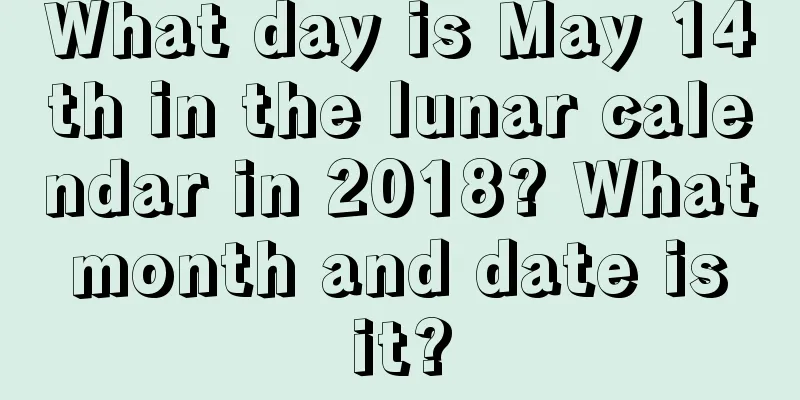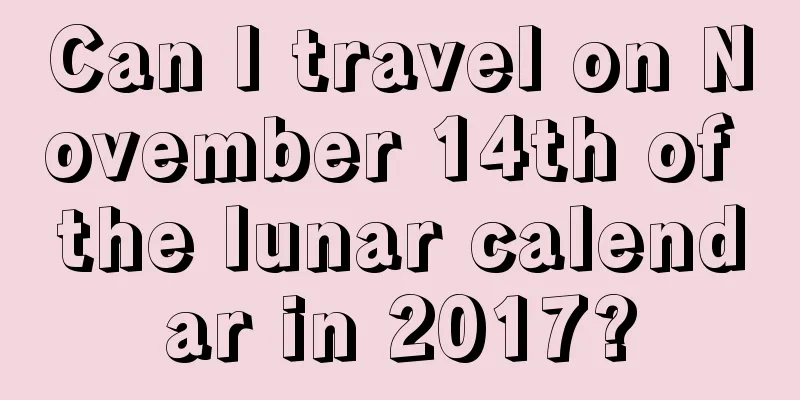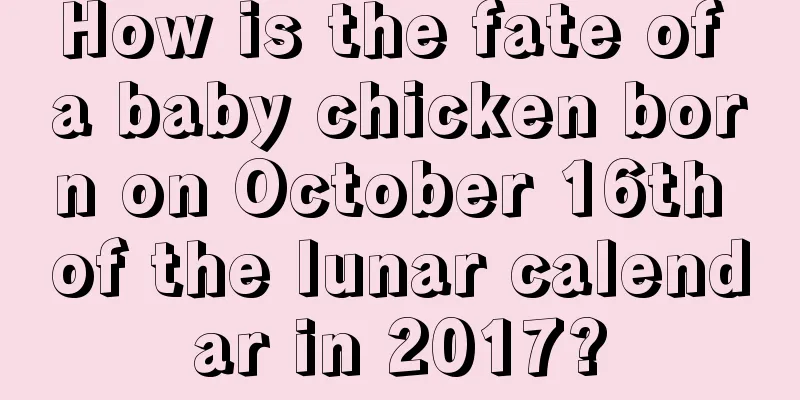Can I do laundry on New Year’s Eve? Which days during the Chinese New Year are not suitable for washing clothes?

Introduction: There are many traditional festivals in our country's traditional culture, and New Year's Eve is one of them. So can I do the laundry on New Year’s Eve? Which days during the Chinese New Year are not suitable for washing clothes? It’s the end of the year before we know it. So what should we pay attention to at the end of the year? The Fortune Teller website will help you understand all the matters concerning the 2018 Chinese New Year and New Year’s Eve.Can I do laundry on New Year’s Eve?You can do laundry on New Year’s Eve.Because New Year's Eve is a good time to get rid of the old and welcome the new. The 30th is the time to wash the old, take off the old and put on new clothes on the first day of the new year. The new year begins. As early as the 1960s and 1970s, people in rural areas would clean clothes, rooms, chairs, etc. on New Year's Eve in preparation for the New Year. All clothes changed on New Year's Eve must be washed. How can you celebrate the New Year without washing them? It's unlucky. You can wash them any day after the second day of the New Year. It is indeed difficult to clean within five days. It is said that the talent will be swept away. Which days during the Chinese New Year are not suitable for washing clothes?Avoid washing clothes on the first and second days of the Chinese New Year.The Water God’s birthday is on the first and second day of the Chinese New Year, so it is taboo to wash clothes on these two days. Taboos on New Year's EveNew Year’s Eve is also called “New Year’s Eve”. New Year's Eve is also called Dachu, which means New Year's Eve. It refers to the last night of the twelfth lunar month. It is connected with the Spring Festival (the first day of the first lunar month), that is, the night before the Spring Festival. Because it is often on the 30th or 29th day of the twelfth lunar month, it is also called New Year's Eve. The last day of the year is called "Sui Chu" and the night of that day is called "New Year's Eve".There are many taboos on New Year’s Eve. For example, avoid saying unlucky words such as ghost, death, and killing, avoid breaking dishes, avoid using bad words, avoid urinating and defecating anywhere, avoid throwing dirty water and lamp oil on the ground, etc. When New Year's Eve comes, people celebrate the festival and celebrate the harvest while taking a bath, changing clothes, and cleaning to drive away diseases and evil spirits. Especially during the New Year’s Eve dinner, there are more taboos. When elders give younger generations more rice and dishes, if the younger generation is full and doesn’t want more, they cannot say “no” but “I’ve got some”; if they have finished some tea and snacks, they should say “I’m full” or “There’s too much” instead of just saying “There’s no more”… These auspicious words are people’s “New Year’s Eve homework”, and adults should teach children to say them, otherwise the new year will not be smooth. Avoid saying unlucky words such as "broken", "death", "illness", "lose" and "defeat"; if you accidentally violate the taboo, you should avoid possible ominous consequences by spitting or saying "children's words are innocent". Before eating the New Year’s Eve dinner, you must first prepare offerings to worship your ancestors. Before inviting the ancestral spirits, family members and items must be present, otherwise the family will not be reunited and the wealth will not be complete. After the ancestral spirits are invited, no one is allowed to occupy the seats on both sides of the altar, which means that one cannot compete with the ancestors for seats; no one is allowed to make noise or swear, otherwise it would be disrespectful to the ancestors; no one is allowed to spill leftover tea on the ground, so as not to confuse pouring offerings with splashing water; when offering sacrifices to the ancestral spirits, one is not allowed to shout out the names of children, so as not to be heard by the homeless ghosts outside the gate and cause the children to die. During a formal meal, it is very taboo to be disturbed by others, especially not to have someone visit, because this is called "stepping on the New Year's dinner", which will make the whole family restless. After eating the New Year’s Eve dinner, there is a custom of staying up all night on New Year’s Eve. The whole family gathers together, sits around the fire, reminisces about the past and talks about the present, talks about good wishes, and places hope on the new year, thus staying up all night. At the same time, some taboos should be observed when staying up all night. It is taboo to make loud noises so as not to wake up the devil; it is taboo to look in the mirror so as not to see the "devil"; it is taboo to pour lamp oil on the ground. If the smell of oil dilutes the smell of wine, the "devil" will wake up and cause disasters to follow; it is taboo to break objects, which means that there will be "bad luck" this year. The remedy is to wrap them in red paper, recite auspicious words such as "peace every year", and place them on the altar for a few days to resolve the disaster. Summary: The above content is about [Can I wash clothes on New Year’s Eve? Which days during the Chinese New Year are not suitable for washing clothes? 】Problem analysis, hope it can help everyone! |
Recommend
Check the position of the God of Wealth on April 11, 2020, Lunar Calendar, Year of the Rat!
Understanding the position of the God of Wealth c...
Which month in the Gregorian calendar is the Autumnal Equinox? Is the Autumnal Equinox based on the Gregorian calendar or the lunar calendar?
The Autumnal Equinox is also one of the 24 solar t...
What zodiac sign does a baby born on November 12, 2018 belong to?
The twelve constellations are the zodiac, which ar...
Is February 17th of the lunar calendar in 2022 a good year? What is your zodiac sign?
The second month of the lunar calendar has arrived...
Is the fourth day of the twelfth lunar month in 2021 an auspicious day? How was the day?
Good or bad days are different every day. Sometime...
What is the fate of a boy born on the beginning of summer in 2021? What time of the beginning of summer will a boy have good fortune?
The Beginning of Summer is the beginning of summer...
Analysis of the twelfth day of the sixth lunar month in 2021. Is it a good day to set up the bed?
Different days have different good and bad fortune...
Is June 13th of the lunar calendar in the Gengzi Year of 2020 an auspicious day for signing a contract?
Is June 13th of the lunar calendar in the Gengzi Y...
What should we do during the Winter Solstice? Analysis of folk customs during the winter solstice
The Winter Solstice is a very important solar term...
Is it not suitable to move to a new home during the Minor Cold in 2021? What is the ninth day of the Minor Cold in 2021?
Introduction: It is generally necessary to choose ...
Can I set up the bed on the third day of the eleventh lunar month in 2021? Is it good to set up the bed?
There are certain rules and considerations for cho...
What is the lunar month of the White Dew solar term in 2022?
The time of Bailu is generally calculated accordin...
How is the fifth day of the eighth lunar month in 2021? Can the funeral be held on that day?
Different days have different good and bad qualiti...
Is it appropriate to move into the house on the 19th day of the eighth lunar month, the Cold Dew day of 2017? What can’t you do during Cold Dew?
Chinese culture has a long history, and many tradi...
What is the fate of a girl born on the 19th day of the twelfth lunar month in 2019?
Everyone has his or her own corresponding birth mo...









